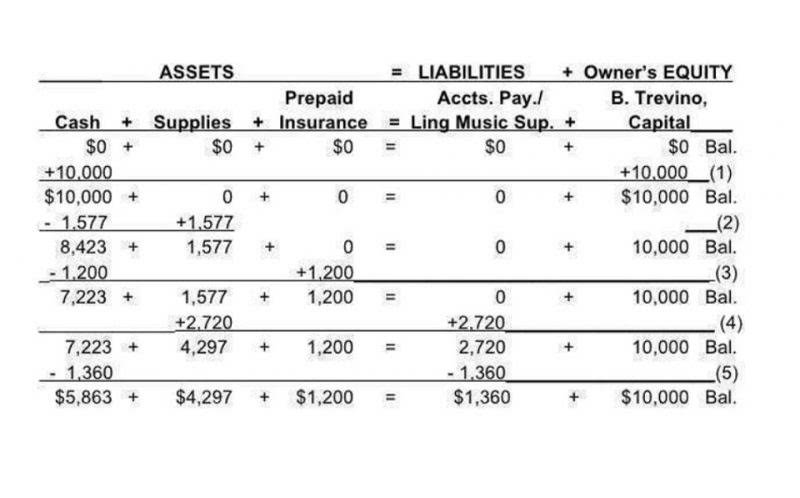In fact, our sole focus is the technology sector, which gives us the expertise to help you leverage the opportunities — and overcome the challenges — faced by your company on an ongoing basis. Tech companies often operate in multiple accounting for tech companies jurisdictions, making tax compliance and transfer pricing complex. Navigating international tax laws and ensuring proper transfer pricing arrangements can be a considerable accounting challenge. Our fractional CFO services provide big-company expertise on a small-company budget. Monocacy offer outstanding service to small businesses bringing together key pieces to successfully run your business. Rapid innovation, complex funding structures, and unpredictable growth trajectories make the tech industry incredibly challenging—especially from a financial perspective.
Time Value of Money:
- SaaS businesses must manage deferred revenue, churn rates, and subscription billing cycles, unlike traditional product-based companies.
- Revenue recognition under ASC 606 aligns with these milestones, ensuring revenue is recognized as services are performed and milestones are achieved.
- Investors, particularly institutional ones, expect GAAP-compliant financial statements before committing significant capital.
- We install Xero Cloud Accounting for our clients, giving you access to valuable financial information about your business 24/7, wherever you are in the world.
- Many startups offer stock options as part of their compensation packages, but failing to account for them correctly can lead to compliance issues and financial misstatements.
Tech companies need specialized accounting expertise to handle their unique financial challenges and go beyond traditional accounting to manage complex revenue streams, R&D expenses, and equity compensation. Proper IP valuation and amortization are essential for tech companies to accurately reflect their profitability. By following these practices, they can maintain transparent financial statements, manage tax obligations, and avoid misstatements that could affect investor confidence.
- Your tech company can maximize financial opportunities while maintaining compliance with complex tax regulations and make informed decisions for long-term success.
- Better money management is essential for accurate record-keeping and helping tech businesses understand the balance sheet.
- As tech companies mature, generally accepted accounting principles (GAAP) compliance becomes increasingly important.
- Capitalizing R&D costs enables tech companies to recognize these expenses over the useful life of the developed asset, rather than all at once.
- Furthermore, it ensures compliance with regulations and facilitates smooth audits or due diligence processes in the future.
Understanding ASC 606
- This step ensures that revenue is recognized appropriately for each distinct element of the contract.
- We’ll help you determine how you can secure financing, how to give yourself a runway during large R&D projects and during the startup phase, and much more.
- We may have a local-first philosophy, but we have global expertise, allowing you to successfully navigate international tax regulations.
- Tech companies include software developers, electronics manufacturers, fintech companies, and IT service providers with extraordinarily fast growth plans and potential.
- By establishing proper financial controls early, these professionals help prevent issues that could otherwise derail growth during critical scaling phases.
- We believe in guiding you out of the dark, not walking you further into the depths of a financial maze.
- Our collaborative approach offers a deeper level of service that goes beyond simple accounting for technology companies.
ASC 606 requires careful consideration of whether promised goods or services are distinct within the context of the contract. This assessment involves evaluating the customer’s ability to benefit from each item independently and whether the items are interdependent or significantly integrated with other promised goods or services. The first step involves determining whether a contract exists between the company and the customer. This includes identifying the rights and obligations of each party, such as payment terms and performance commitments. Whether your company is bootstrapped or VC-funded or in the rapid growth phase, MRPR has the experience to move you forward. I started working with Gerry at the inception of our company, and his experience with start-ups helped take our business from concept to commercialization.

What is the best accounting method for tech startups?
Tech companies can maintain resilient financial records while focusing on core business growth with this systematic approach. Tech companies have a distinct financial landscape that differs from conventional accounting practices. They often negotiate annual contracts with upfront payments and must recognize this revenue gradually as they deliver services over each accounting period. This creates the need for advanced revenue recognition protocols and careful cash flow management. For tech startups seeking investors or considering acquisition, preparing for due diligence and audits is essential for building trust and demonstrating financial stability. Investors and potential acquirers need to assess the company’s financial health, operational processes, and legal compliance before making decisions.

Track Revenue
- Stock-based compensation, such as employee stock options and grants, is a common practice in tech companies, especially for startups aiming to attract and retain talent.
- Effective accounting for tech companies demands talented professionals, proven frameworks, and the experience to know exactly what success looks like.
- This transformation advances their ability to tackle challenges by transitioning from traditional methods to a more efficient tech stack that supports their role as business advisors.
- By opting for outsourced accounting, tech companies and startups can access specialized expertise at a fraction of the cost.
- This piece highlights the diverse functions in tech accounting, the strategies employed, and the opportunities present.
Tech companies operate in a fast-paced environment where financial structures can be complex. With subscription-based revenue models, intellectual property valuation, and global transactions, traditional accounting methods don’t always apply. Proper accounting for tech companies ensures compliance with industry-specific regulations, accurate revenue recognition, and financial strategies that align with rapid growth and scalability. As the tech industry continues to evolve rapidly, companies must adapt their accounting practices to keep pace with innovations and regulatory changes. This article explores the essential aspects of accounting for technology companies, including common accounting practices, financial reporting requirements, and tax considerations. Accounting is crucial in tech companies, where innovation, high growth, and https://www.bookstime.com/ complex business models are the norm.

An in-house team often has intimate knowledge of the company’s financial history, enhancing decision-making. However, maintaining an retained earnings in-house team can be costly due to salaries, benefits, and other necessary or sometimes unnecessary expenses. Tech companies should use accounting tools and software to track and manage their current and future cash flows effectively. Regular expense reviews and prioritisation can assist tech businesses in extending their financial runway during the early stages.

Intellectual Property and Intangible Assets Management

Key Performance Indicators (KPIs) play a crucial role in accounting for tech startups. These accounting metrics help track the financial health of a startup company and measure its performance against predetermined benchmarks. Accounting is crucial for the success and sustainability of small startups, growth companies, and unprofitable startups that rely on venture capital funding. Understanding the importance of accounting for tech companies and its key components is essential at every stage. Revenue recognition is crucial for technology companies, particularly those with subscription-based models or long-term contracts.
Manage burn rate, extend your runway
From the earliest days of Excel to modern-day cloud accounting, technology and accounting have evolved hand-in-hand. Computers are, after all, adding machines, and bookkeeping and accounting deal heavily in numbers. Today, it’s easy to track all of your expenses and print valuable financial reports, leaving your accountant with more time to help you strategize.
